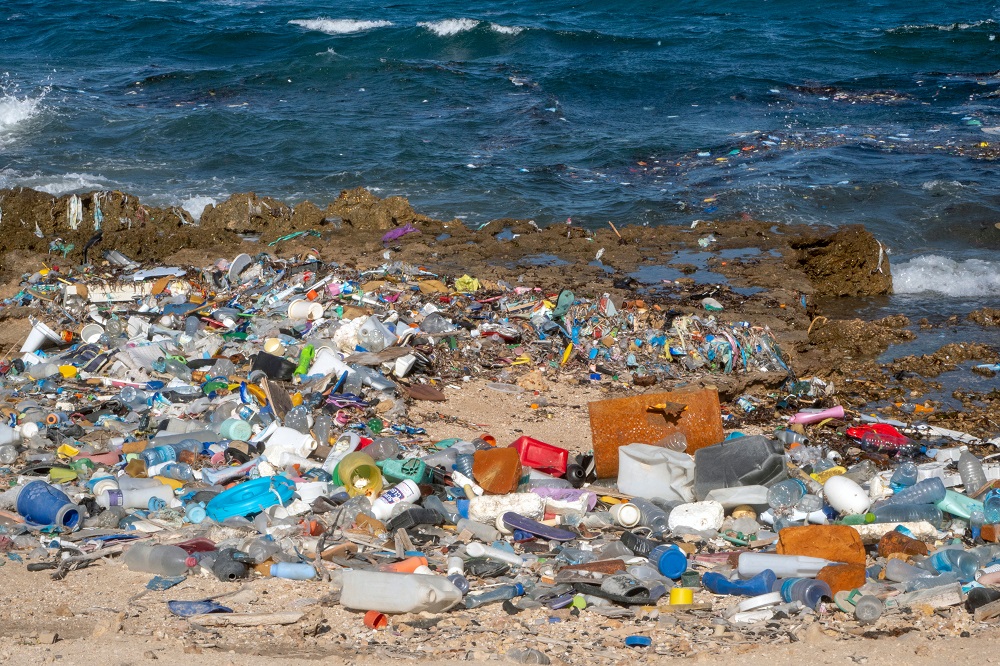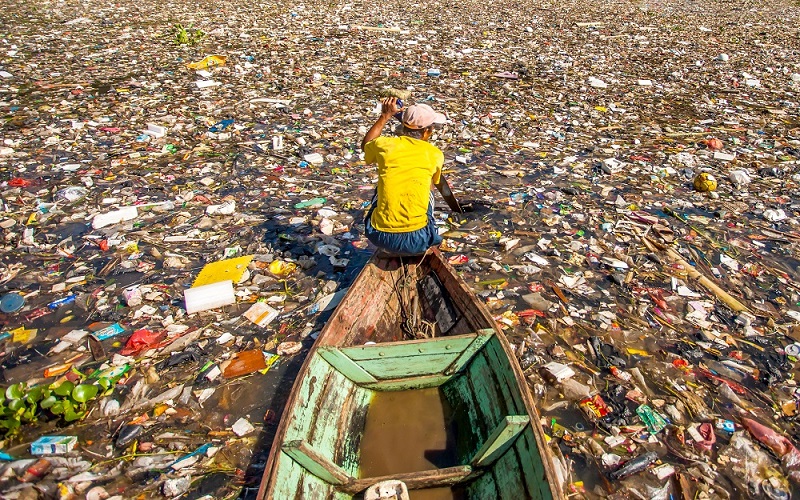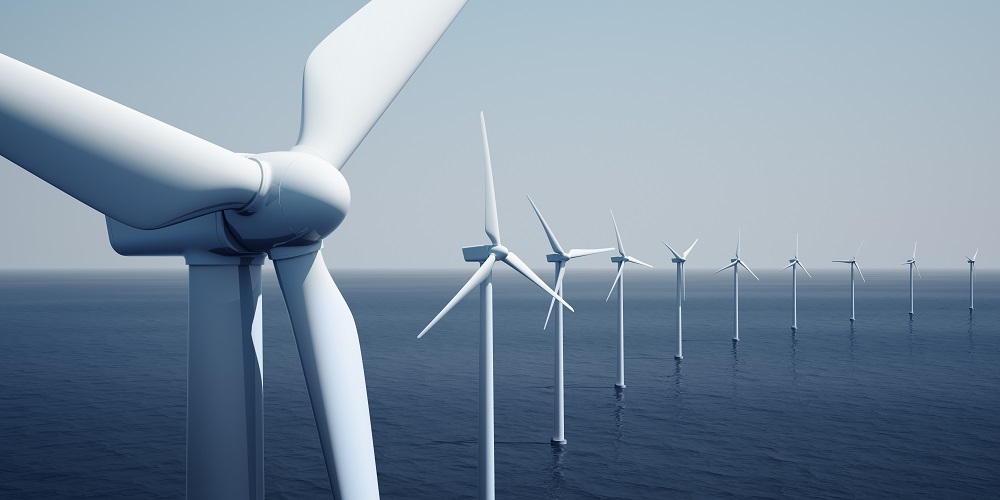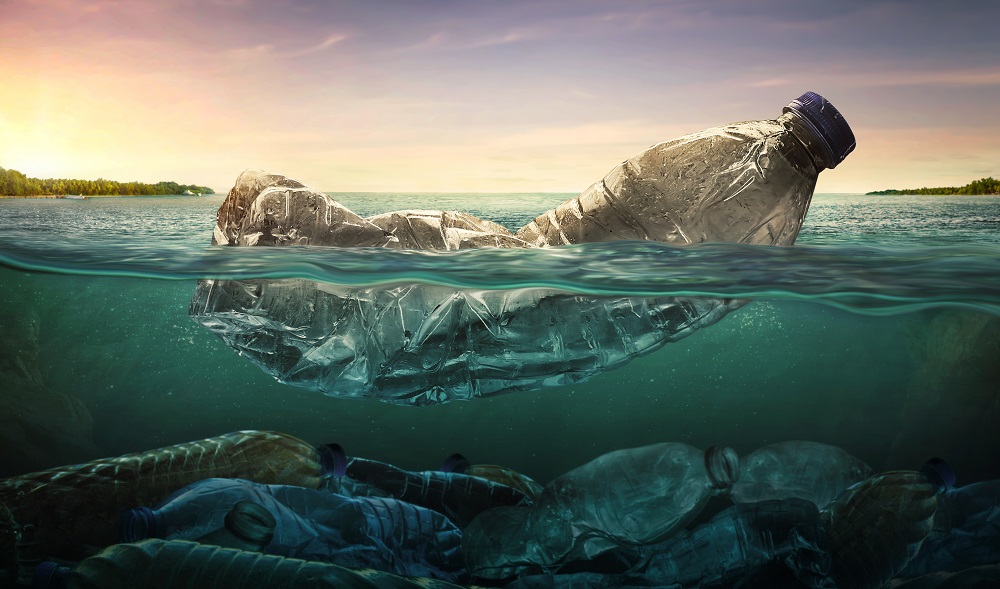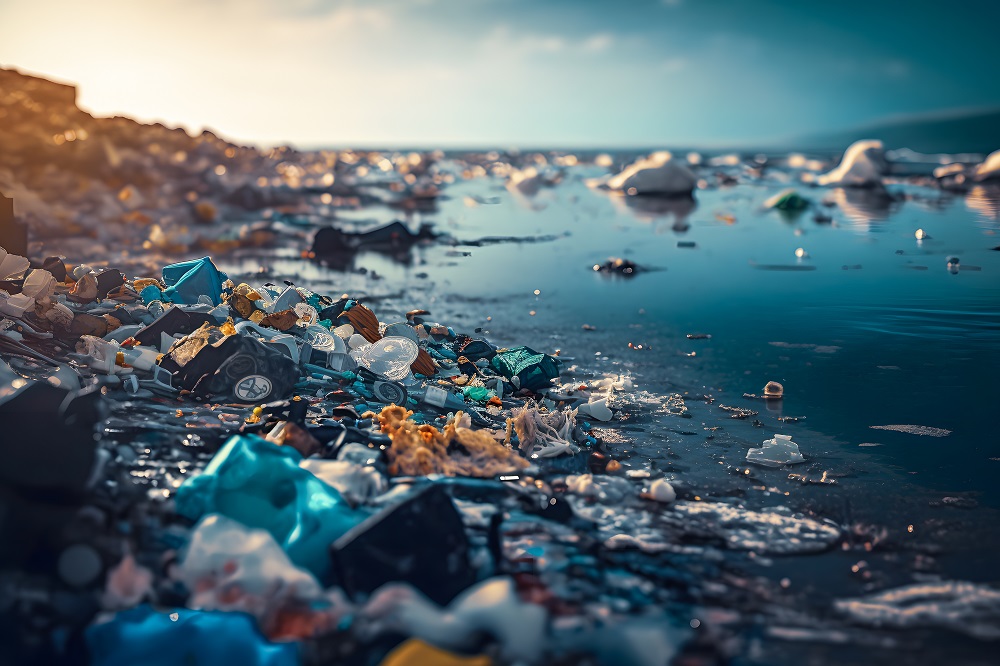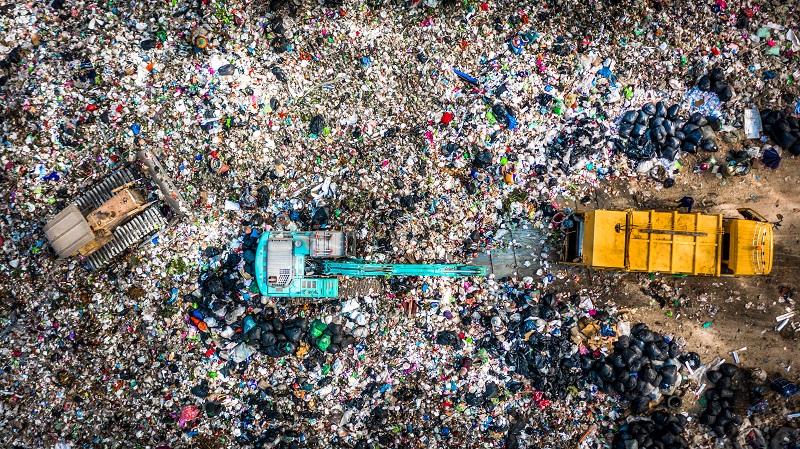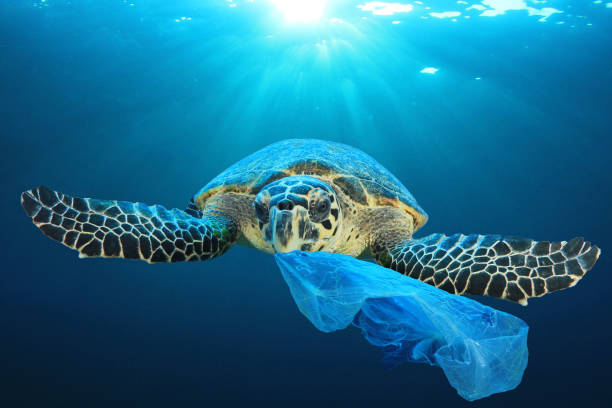CONTENT FROM

Efforts to build a more sustainable blue economy in the US stalled under the administration of Donald Trump. An executive order in June 2018 replaced the National Ocean Policy of 2010 with one that emphasised economic and security considerations over environmental ones, put the onus on states to protect US waters, and eliminated a requirement to involve Indigenous groups in decision-making. More recent actions have gone in a similar direction. The 8,000 square-kilometre Northeast Canyons and Seamounts Marine National Monument, home to endangered whale species and fragile deep-sea corals, has recently been reopened to commercial fishing.
Oil drilling in the shallow waters of the Gulf of Mexico has been incentivised by reduced royalty rates, while new offshore wind developments from Florida to South Carolina have been blocked. The Trump administration also refused to sign the G7 Ocean Plastics Charter, designed to fight maritime pollution, and in its final weeks has sought to sell oil-drilling rights in the coastal plain of Alaska’s Arctic National Wildlife Refuge, a move widely condemned by environmentalists.

Wind of change
But after Joe Biden takes office as president on January 20th, he is likely to undo some of these reverses and make important strides towards a more resilient ocean economy. “Given President-elect Biden’s legacy as vice-president and in the Senate, we are hopeful he will bring his ‘build back better’ approach to managing and protecting our ocean,” says Laura Cantral, executive director of the Coastal Conservation League. She cites the need to mitigate ocean acidification, rising sea levels and stronger storms produced by climate change as key challenges for the incoming occupant of the White House. “It will be important for our nation’s leaders—in the Congress and in the administration—to work together to address the threats to the health of our oceans.”
During the 2020 Democratic primary, Senator Elizabeth Warren outlined a Blue New Deal, a wide-ranging set of proposals towards a sustainable ocean economy. These include a US$2trn investment in US clean energy, including offshore wind, US$400bn over the next decade towards R&D in renewables, including wave power, the creation of a new Department of Agriculture research programme into aquaculture, and moves to ratify the Law of the Sea treaty and support a ban on high-seas fishing, where currently around 4% of the world’s fish are caught. Some Democrats and campaigners are avoiding the language of the Blue New Deal in the interests of “building a bipartisan consensus”, notes Jason Scorse, director of the Center for the Blue Economy at the Middlebury Institute of International Studies at Monterey. But even if badged differently, some of its signature proposals have already informed Biden’s manifesto commitments, such as the creation of a Civilian Climate Corps, whose tasks would include the restoration of coastal ecosystems—including wetlands, oyster reefs, and mangrove and kelp forests—in order to help prevent flooding and support biodiversity and fisheries.
Efforts to make port infrastructure greener (such as the electrification of shipping), investment in coastal restoration and the development of new sustainable aquaculture initiatives will probably enjoy some success, says Dr Scorse. “The biggest challenges are getting Republicans on board and building a strong national coalition,” he adds, but the economic benefits of such policies (some of which will fall under Biden’s sustainable infrastructure plan) may help secure cross-party support. Indeed, the US$900bn coronavirus relief package passed by Congress in December included US$35bn of new funding for renewable technologies, including research into wind and solar power. The doubling of offshore wind in the next decade is named as a key component of Biden’s commitment to achieve a carbon pollution-free power sector by 2035. With just one such project—the Block Island Offshore Wind Farm off Rhode Island—currently in existence in the US, independent analysis suggests there is potential for the sector to expand rapidly.
Climate action
Separately, Biden is likely to back specific legislation to take action on oceanic climate change. In November a Democrat-sponsored Ocean-Based Climate Solutions Act was put before the House of Representatives’ Natural Resources Committee, outlining a pathway towards protecting 30% of US waters by 2030 (in line with international momentum building around this target). The law would also ban new oil and gas leases in the country’s Outer Continental Shelf, boost research and data-gathering into ocean acidification, and create a grant programme for “shovel-ready” projects to promote climate-resilient coastlines and fisheries, among other measures.
A prospective revitalisation of regional planning bodies—which brought together state and federal officials, Indigenous nations and other stakeholders to help manage the ocean—is among the act’s most critical measures, says Kelsey Leonard, an assistant professor at the University of Waterloo and former tribal co-lead of the Mid-Atlantic Regional Planning Body on behalf of the Shinnecock Nation. “We’ve had this succession of executive orders that have pushed the needle forward and allowed us to take strong advances on oceanic policy regionally and nationally,” she adds. “But we need a legislative fix that allows for there to be guarantees codified in statutes.”
“I am hopefully optimistic that we will have a better pattern of climate response and ocean-policy work,” says Dr Leonard, who emphasises that Indigenous nations and ethnic-minority communities are on the “front lines” of climate change. “There are still significant obstacles to addressing some of the systemic issues relating to ocean justice in the US,” she adds, “both for human beings, but also being eco-centric and centring the needs of the ocean above our human priorities.”
Outside Congress the incoming administration has other important levers on ocean policy. “It is critical for leadership of agencies like the National Oceanic and Atmospheric Administration to support the scientific expertise we need to make informed decisions and ensure the health of our ocean resources,” says Ms Cantral. The Biden administration is set to rejoin the Paris Climate Change Agreement, create new Marine Protected Areas, and engage once more with UN agencies and other international bodies to sponsor global action on oceanic climate change. Former secretary of state John Kerry, appointed by Mr Biden to be his administration’s special envoy on climate and known to be a strong advocate for ocean conservation, will likely spearhead such efforts. As such, Ms Cantral argues, Mr Biden can have a major impact by “putting the US back in a leadership role to work with the international community to address these issues on a global scale.”
From the World Ocean Initiative:
The original version of this article can be found on the World Ocean Initiative website. Economist Impact cannot accept any responsibility or liability for reliance by any person on this article or any of the information, opinions or conclusions set out in the article.
Back to Blue is an initiative of Economist Impact and The Nippon Foundation
Back to Blue explores evidence-based approaches and solutions to the pressing issues faced by the ocean, to restoring ocean health and promoting sustainability. Sign up to our monthly Back to Blue newsletter to keep updated with the latest news, research and events from Back to Blue and Economist Impact.
The Economist Group is a global organisation and operates a strict privacy policy around the world.
Please see our privacy policy here.
THANK YOU
Thank you for your interest in Back to Blue, please feel free to explore our content.
CONTACT THE BACK TO BLUE TEAM
If you would like to co-design the Back to Blue roadmap or have feedback on content, events, editorial or media-related feedback, please fill out the form below. Thank you.
The Economist Group is a global organisation and operates a strict privacy policy around the world.
Please see our privacy policy here.




 World Ocean Summit & Expo
2025
World Ocean Summit & Expo
2025 UNOC
UNOC Sewage and wastewater pollution 101
Sewage and wastewater pollution 101 Slowing
the chemical tide: safeguarding human and ocean health amid
chemical pollution
Slowing
the chemical tide: safeguarding human and ocean health amid
chemical pollution Hazardous chemicals in plastics - the discussions at INC
Hazardous chemicals in plastics - the discussions at INC








